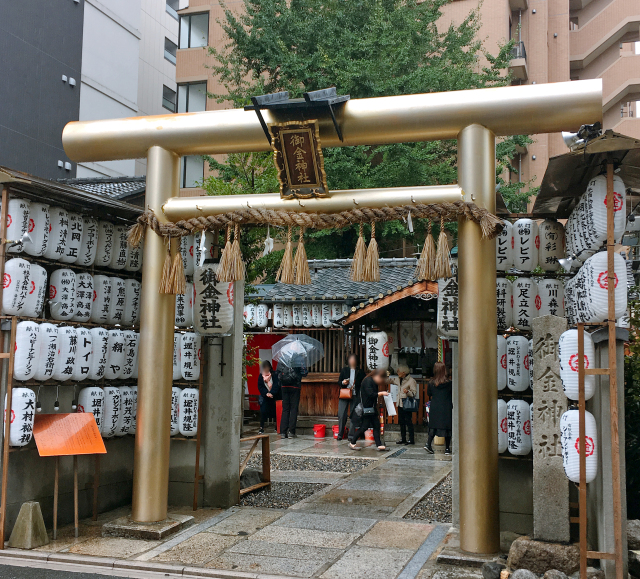
With blessed money and a blessed wallet, is Mai about to strike it rich?
Our reporter Mai recently took a super budget-friendly trip to Kyoto, paying less than 2,000 yen (US$18.50) for the room for the night she spent in Japan’s cultural capital. However, thrifty accommodations weren’t Mai’s only plan for bolstering her financial situation while she was there.
As part of her travel itinerary, Mai stopped by Kyoto’s Mikane Shrine, which was founded over a century ago, in 1883. But it wasn’t the shrine’s historical significance that had drawn her, but its purported connection to wealth and monetary prosperity.
Basically, Mikane Shrine is supposed to be able to make you rich. Even the kanji characters for Mikane, 御金, can alternately be read as “okane,” the Japanese word for “money.”
So Mai strode confidently through the glistening gold-colored torii gate and onto the compact grounds of the shrine itself. She soon spotted a stack of wicker baskets, into which visitors place bills and coins which you then wash with water from a basin, in order to purify them and grant you good luck in monetary matters.
But the main reason Mai had come to Mikane Shrine was in order to purchase a fukusaifu, which is sold at a counter where the shrine offers various Shinto amulets and protection charms.
Fukusaifu translates to “prosperous wallet,” and sure enough, it’s a wallet that’s been blessed by the shrine. It’s said that the money you put inside will multiply, so after Mai purchased one for 1,000 yen (US$9.30) she immediately put the money she’d washed in the shrine’s waters into her fukusaifu.
We should mention that Mikane Shrine doesn’t just have a reputation for granting success in your career and investment ventures. It’s said that it also boosts your luck for potentially quicker routes to riches such as gambling. As a matter of fact, Mai found a number of people online who said that they after they bought lottery tickets and put them in their fukusaifu, the tickets turned out to be winners, so now that she had a fukusaifu of her own, her next stop was the nearest lotto ticket stand.
For 2,000 yen, Mai bought 10 scratcher tickets, which she tucked into her wallet and kept there until she got home. Once there, she pulled out the tickets, plus a five-yen coin she’d washed at Mikane Shrine.
▼ Five-yen coins in general are supposed to be lucky in Japan, since the Japanese words for “five yen,” go en, sound just like goen, meaning “good fortune.”
The tickets Mai picked up happened to be One Piece-themed, and the pirate motif extends to the symbols that tell you if the ticket is a winner or not. You scratch off all nine boxes, and if you get four or more round pirate face marks, you win, with more pirate faces equaling a bigger prize, topping out at 100,000 yen for nine winning marks. Conversely, the boxes that contain skulls and crossbones don’t do you any good at all.
Our reporter got off to a slow start, as her first ticket had only three circular pirate marks, placing it just below the payout line,
Things didn’t go any better with tickets two through four, but on the fifth…
…Mai hit four winning marks in the first six boxes!
With a 200-yen payout already guaranteed, she still ha three boxes to go, and to multiply her luck to the max, she decided to scratch off the remaining spaces while placing the ticket atop her fukusaifu…
…a tactic which rewarded her with one more winning mark for a total of five, worth 1,000 yen.
Mai ended up with two winning tickets out of the ten she’d bought, the second one a 200-yen four-mark.
Put it all together, and Mai’s winnings came to 1,200 yen, which, when judged against her 2,000-yen lottery ticket investment, is an 800-yen loss. So does this mean that the fukusaifu was worthless?
Not necessarily. Remember, the SoraNews24 staff isn’t exactly known for their gambling success. Our last two lottery ticket experiments ended with losses of 634,800 yen and 496.200 yen. By that metric, Mai’s modest 800-yen loss, makes her SoraNews24’s goddess of gamblers, or at least a high-ranking sorceress (and the results hold up as percentages, too, as Mai’s 40-percent loss is far below the 63.4-percent and 49.6-percent losses of the other trials).
Plus, Mai says that a few days after coming back from Kyoto, she went to a pachinko parlor and hit a 100,000-yen jackpot, so she thinks there may be some sort of time-delay involved with Mikane Shrine’s fukusaifu. Oh, but speaking of time, like most Shinto shrine good-luck charms, the special wallets are only said to be effective for one year, after which she’ll have to return to the shrine to buy another, or go back to old-fashioned hard work at her job that occasionally requires her to eat sparrows.
Shrine information
Mikane Shrine / 御金神社
Address: Kyoto-fu, Kyoto-shi, Nakagyo-ku, Nishitoin-dori Oikeagaru Oshinishitoincho 614
京都府京都市中京区西洞院通御池上ル押西洞院町614
Photos ©SoraNews24
● Want to hear about SoraNews24’s latest articles as soon as they’re published? Follow us on Facebook and Twitter!
[ Read in Japanese ]

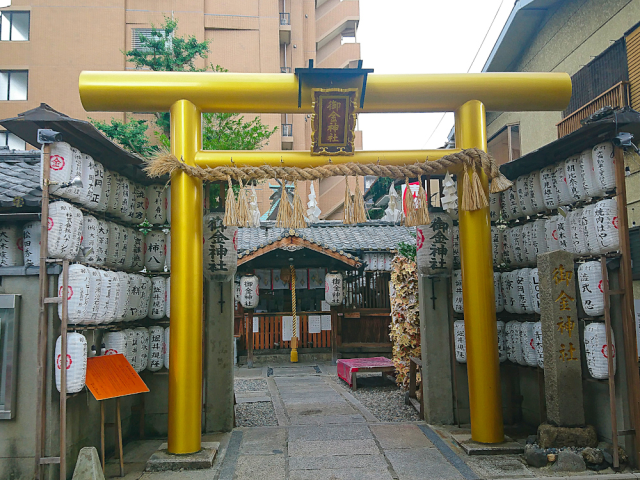
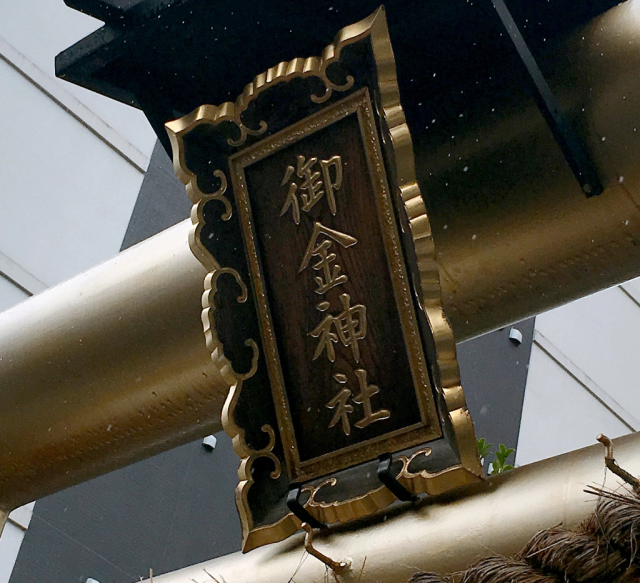
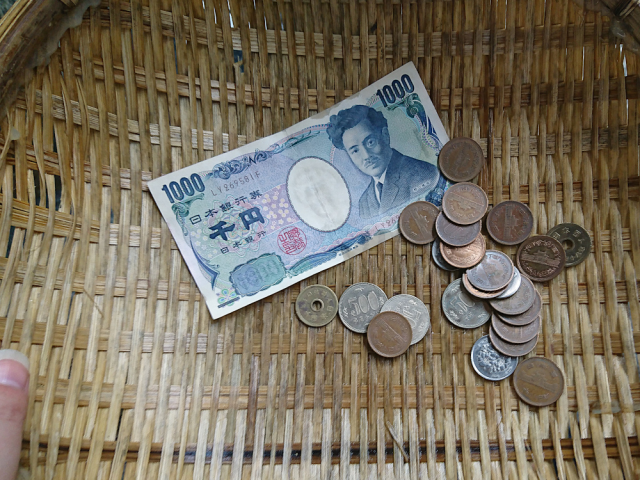
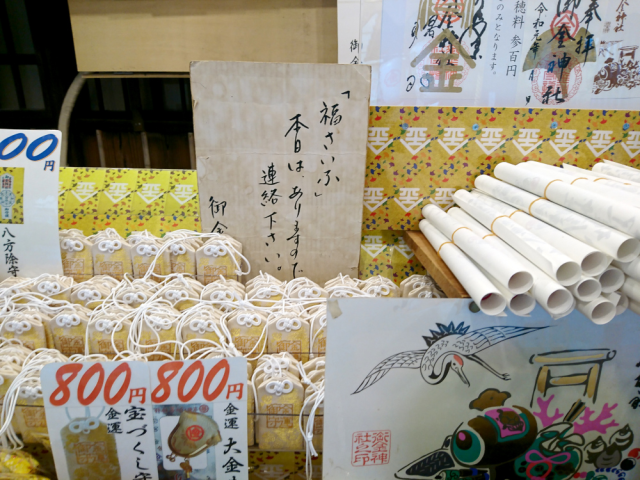
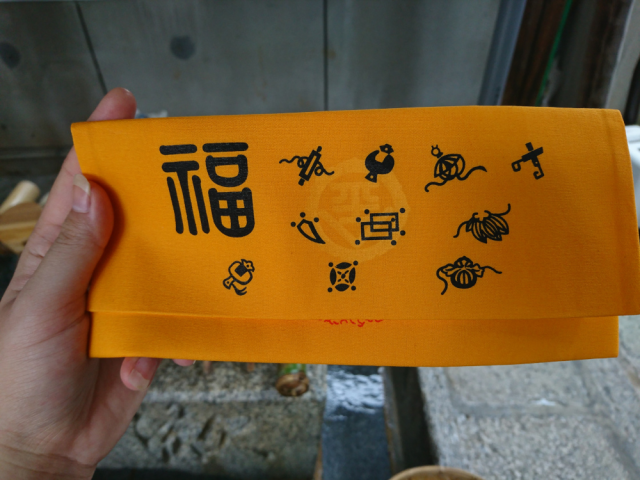

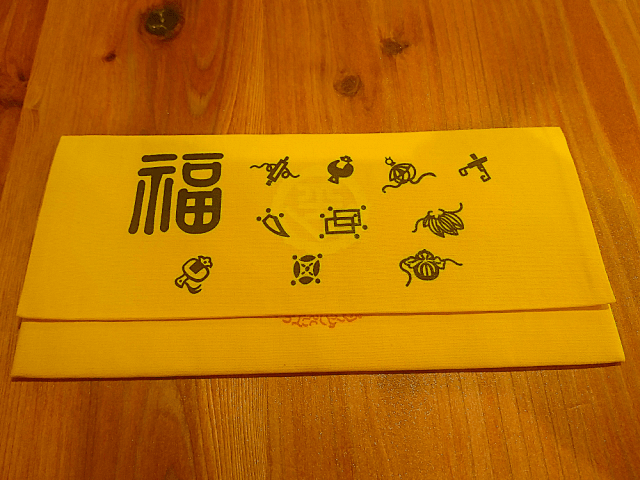
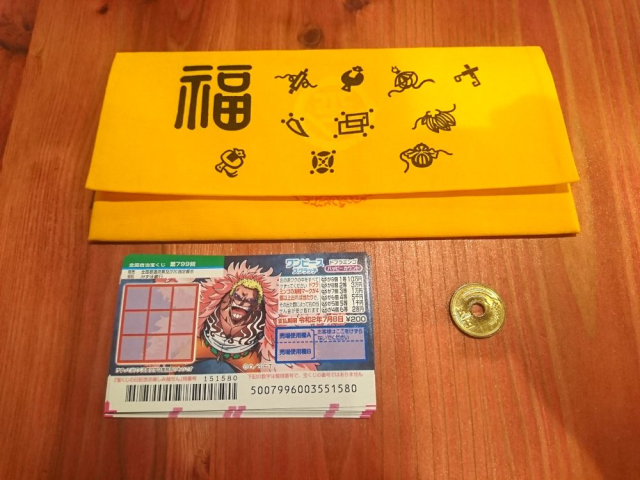

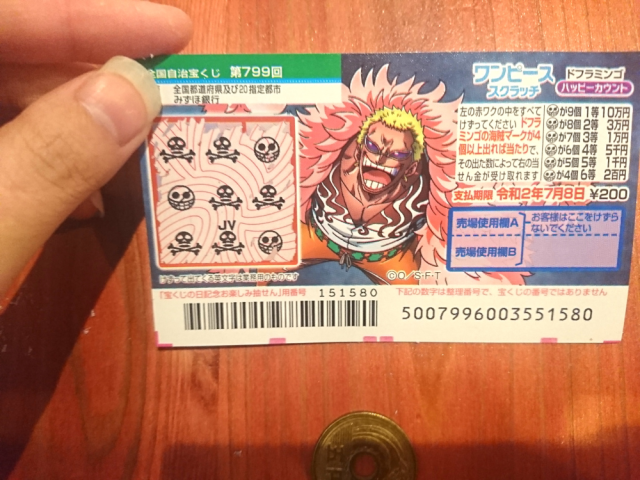
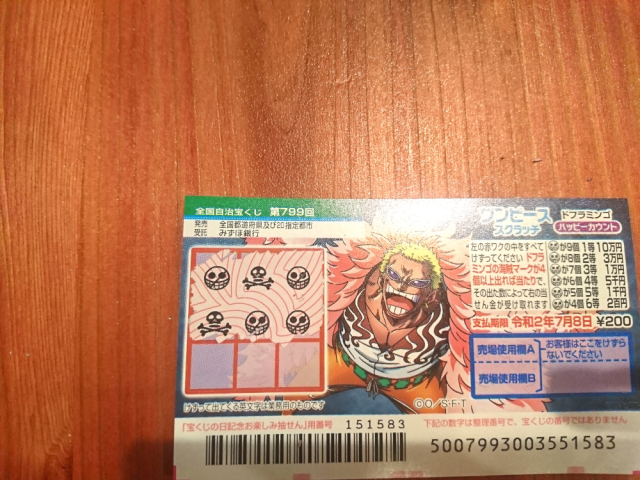
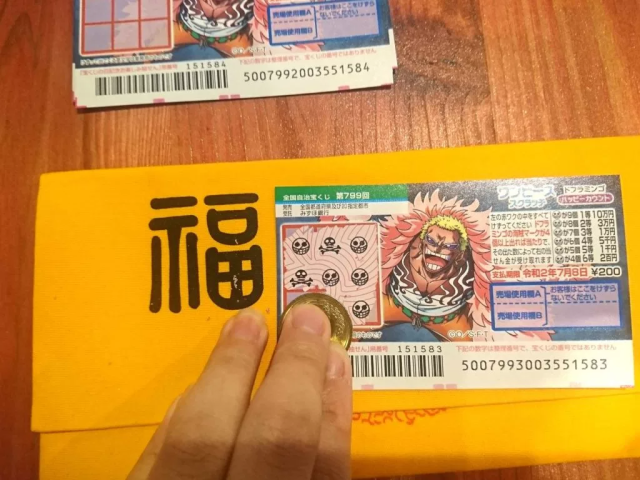
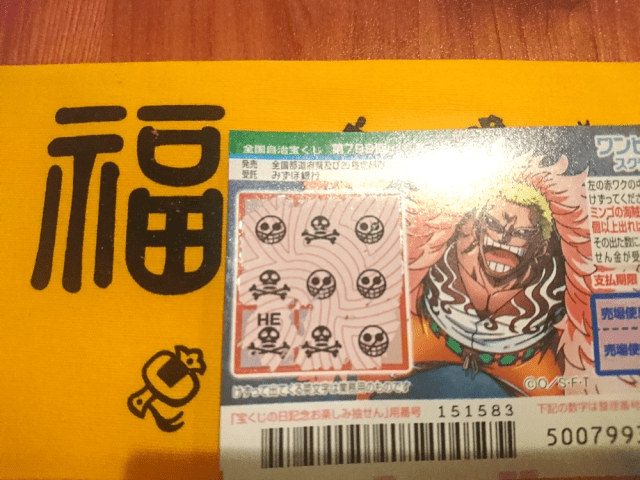
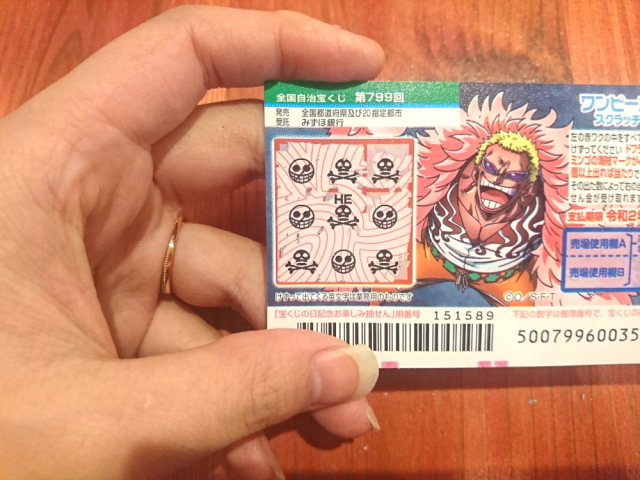
 Busty ninja girl barred from Smash Bros. gets her own Tokyo pop-up store/merch line【Photos】
Busty ninja girl barred from Smash Bros. gets her own Tokyo pop-up store/merch line【Photos】 We revolutionize tapioca tea by making a savory hot pot dinner with both ingredients【SoraKitchen】
We revolutionize tapioca tea by making a savory hot pot dinner with both ingredients【SoraKitchen】 Kyoto’s awesome fire ramen: A one-of-a-kind dining experience our reporter Mai just tried【Video】
Kyoto’s awesome fire ramen: A one-of-a-kind dining experience our reporter Mai just tried【Video】 Okinawa soul food: We try the most epic pork and egg onigiri rice balls in Japan
Okinawa soul food: We try the most epic pork and egg onigiri rice balls in Japan At this Kyoto shrine, be careful what you wish for—and how—, because you just might get it
At this Kyoto shrine, be careful what you wish for—and how—, because you just might get it How to order snacks on a Shinkansen bullet train in Japan
How to order snacks on a Shinkansen bullet train in Japan Demon Slayer: Kimetsu no Yaiba gets new roller coaster attractions and food at Universal Studios Japan
Demon Slayer: Kimetsu no Yaiba gets new roller coaster attractions and food at Universal Studios Japan New samurai glasses are Japan’s latest weird must-have souvenir
New samurai glasses are Japan’s latest weird must-have souvenir Burger King Japan suddenly adds Dr. Pepper and Dr. Pepper floats to its menu nationwide
Burger King Japan suddenly adds Dr. Pepper and Dr. Pepper floats to its menu nationwide Nintendo history you can feel – Super NES, N64, and GameCube controllers become capsule toys
Nintendo history you can feel – Super NES, N64, and GameCube controllers become capsule toys High-fashion Totoro cuddle purse is like an elegant stroll in the forest【Photos】
High-fashion Totoro cuddle purse is like an elegant stroll in the forest【Photos】 Japan’s new difficult-to-drink-from beer glass protects your liver, but it’s a brutal experience
Japan’s new difficult-to-drink-from beer glass protects your liver, but it’s a brutal experience Kyoto Tower mascot termination reveals dark side behind cute Japanese characters
Kyoto Tower mascot termination reveals dark side behind cute Japanese characters New Pokémon ice cream, dessert drinks, and cool merch coming to Baskin-Robbins Japan【Pics】
New Pokémon ice cream, dessert drinks, and cool merch coming to Baskin-Robbins Japan【Pics】 To combat declining birth rate, Japan to begin offering “Breeding Visas” to foreigners
To combat declining birth rate, Japan to begin offering “Breeding Visas” to foreigners Hello, cosmetics! Clinique teams up with Hello Kitty this summer for first-time collaboration
Hello, cosmetics! Clinique teams up with Hello Kitty this summer for first-time collaboration “The most Delicious Cup Noodle in history” – Japan’s French Cup Noodle wins our heart【Taste test】
“The most Delicious Cup Noodle in history” – Japan’s French Cup Noodle wins our heart【Taste test】 Starbucks releases a cute Frappuccino and Unicorn Cake…but not in Japan
Starbucks releases a cute Frappuccino and Unicorn Cake…but not in Japan McDonald’s Japan’s Soft Twist Tower: A phantom ice cream only sold at select branches
McDonald’s Japan’s Soft Twist Tower: A phantom ice cream only sold at select branches Yabai Ramen: What makes this Japanese ramen so dangerous?
Yabai Ramen: What makes this Japanese ramen so dangerous? Finally! Nintendo Japan expands Switch 8-bit controller sales to everybody, Online member or not
Finally! Nintendo Japan expands Switch 8-bit controller sales to everybody, Online member or not Japanese government wants to build luxury resorts in all national parks for foreign tourists
Japanese government wants to build luxury resorts in all national parks for foreign tourists 10 things you should buy at 7-Eleven in Japan
10 things you should buy at 7-Eleven in Japan Studio Ghibli releases anime heroine cosplay dresses that are super comfy to wear
Studio Ghibli releases anime heroine cosplay dresses that are super comfy to wear Woman charged for driving suitcase without a license in Osaka
Woman charged for driving suitcase without a license in Osaka Studio Ghibli unveils My Neighbour Totoro miniature house model
Studio Ghibli unveils My Neighbour Totoro miniature house model Kyoto experiencing problems with foreign tourists not paying for bus fares, but not on purpose
Kyoto experiencing problems with foreign tourists not paying for bus fares, but not on purpose Fighting mild hunger with a Japanese soda that turns into jelly in the stomach【Taste test】
Fighting mild hunger with a Japanese soda that turns into jelly in the stomach【Taste test】 Studio Ghibli’s Howl’s Moving Castle tapestry unveiled in Japan for first time
Studio Ghibli’s Howl’s Moving Castle tapestry unveiled in Japan for first time McDonald’s new Happy Meals offer up cute and practical Sanrio lifestyle goods
McDonald’s new Happy Meals offer up cute and practical Sanrio lifestyle goods Sales of Japan’s most convenient train ticket/shopping payment cards suspended indefinitely
Sales of Japan’s most convenient train ticket/shopping payment cards suspended indefinitely Sold-out Studio Ghibli desktop humidifiers are back so Totoro can help you through the dry season
Sold-out Studio Ghibli desktop humidifiers are back so Totoro can help you through the dry season Japanese government to make first change to romanization spelling rules since the 1950s
Japanese government to make first change to romanization spelling rules since the 1950s Foreigner’s request for help in Tokyo makes us sad for the state of society
Foreigner’s request for help in Tokyo makes us sad for the state of society Ghibli founders Toshio Suzuki and Hayao Miyazaki contribute to Japanese whisky Totoro label design
Ghibli founders Toshio Suzuki and Hayao Miyazaki contribute to Japanese whisky Totoro label design Doraemon found buried at sea as scene from 1993 anime becomes real life【Photos】
Doraemon found buried at sea as scene from 1993 anime becomes real life【Photos】 Tokyo’s most famous Starbucks is closed
Tokyo’s most famous Starbucks is closed Princesses, fruits, and blacksmiths: Study reveals the 30 most unusual family names in Japan
Princesses, fruits, and blacksmiths: Study reveals the 30 most unusual family names in Japan Cafe in Tokyo serves custom 2-D and 3-D latte art, and their coffee is nothing to sniff at either
Cafe in Tokyo serves custom 2-D and 3-D latte art, and their coffee is nothing to sniff at either The cheapest place to stay in Kyoto cost us just 1,800 yen for the night, and it was awesome
The cheapest place to stay in Kyoto cost us just 1,800 yen for the night, and it was awesome Shrine in Japan issues “beautiful woman certificates,” so we went to get one【Photos】
Shrine in Japan issues “beautiful woman certificates,” so we went to get one【Photos】 You can buy, and eat, a grilled sparrow on the streets of Kyoto, so we did【Taste test】
You can buy, and eat, a grilled sparrow on the streets of Kyoto, so we did【Taste test】 Starbucks Japan sells a paper tote bag that looks like a free bag…so should you buy it?
Starbucks Japan sells a paper tote bag that looks like a free bag…so should you buy it? Asahi combines beer, cherry blossoms, and Nogizaka46 idols in touching new commercial 【Video】
Asahi combines beer, cherry blossoms, and Nogizaka46 idols in touching new commercial 【Video】 The only path to this Nagasaki Shinto shrine gets swallowed by the sea every day【Video】
The only path to this Nagasaki Shinto shrine gets swallowed by the sea every day【Video】 A visit to “the most blessed kappa statues in all of Japan”【Photos】
A visit to “the most blessed kappa statues in all of Japan”【Photos】 Yaoi fans rejoice as Shinto shrine seems to open part-time positions for male shrine maidens
Yaoi fans rejoice as Shinto shrine seems to open part-time positions for male shrine maidens Does Japan’s five-yen coin need a foreigner-friendly redesign?
Does Japan’s five-yen coin need a foreigner-friendly redesign? Takoyaki makers surprisingly good at grilling meat for yakiniku too
Takoyaki makers surprisingly good at grilling meat for yakiniku too Street Fighter cosplayer fights coronavirus as real-life physician in China 【Pics & Videos】
Street Fighter cosplayer fights coronavirus as real-life physician in China 【Pics & Videos】 TripAdvisor Japan announces the country’s 10 favorite shrines and temples
TripAdvisor Japan announces the country’s 10 favorite shrines and temples Osaka man wipes away millions in owed taxes by deducting losing horse race tickets
Osaka man wipes away millions in owed taxes by deducting losing horse race tickets My Little Pony gets an anime twist in fan video
My Little Pony gets an anime twist in fan video
Leave a Reply